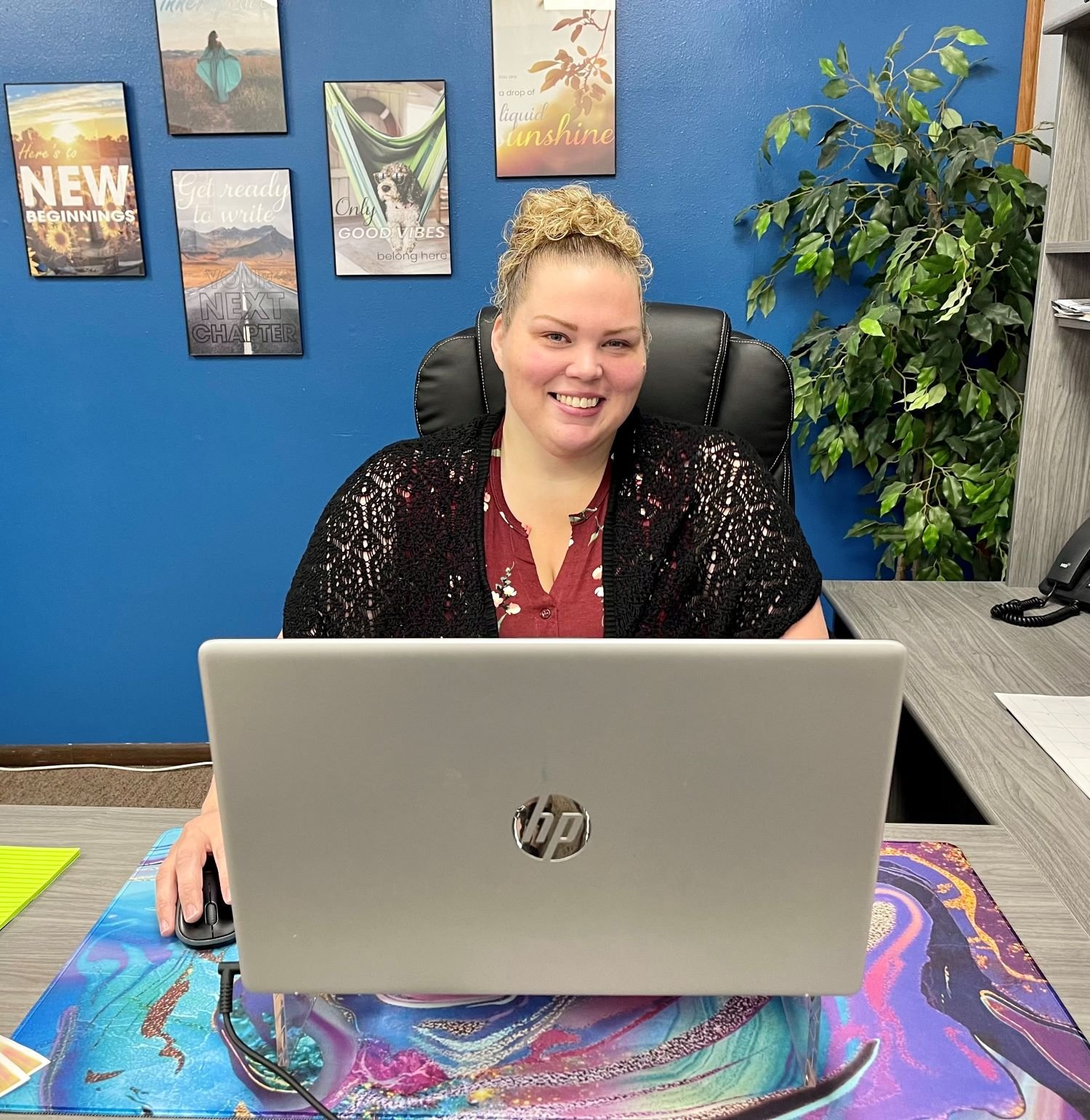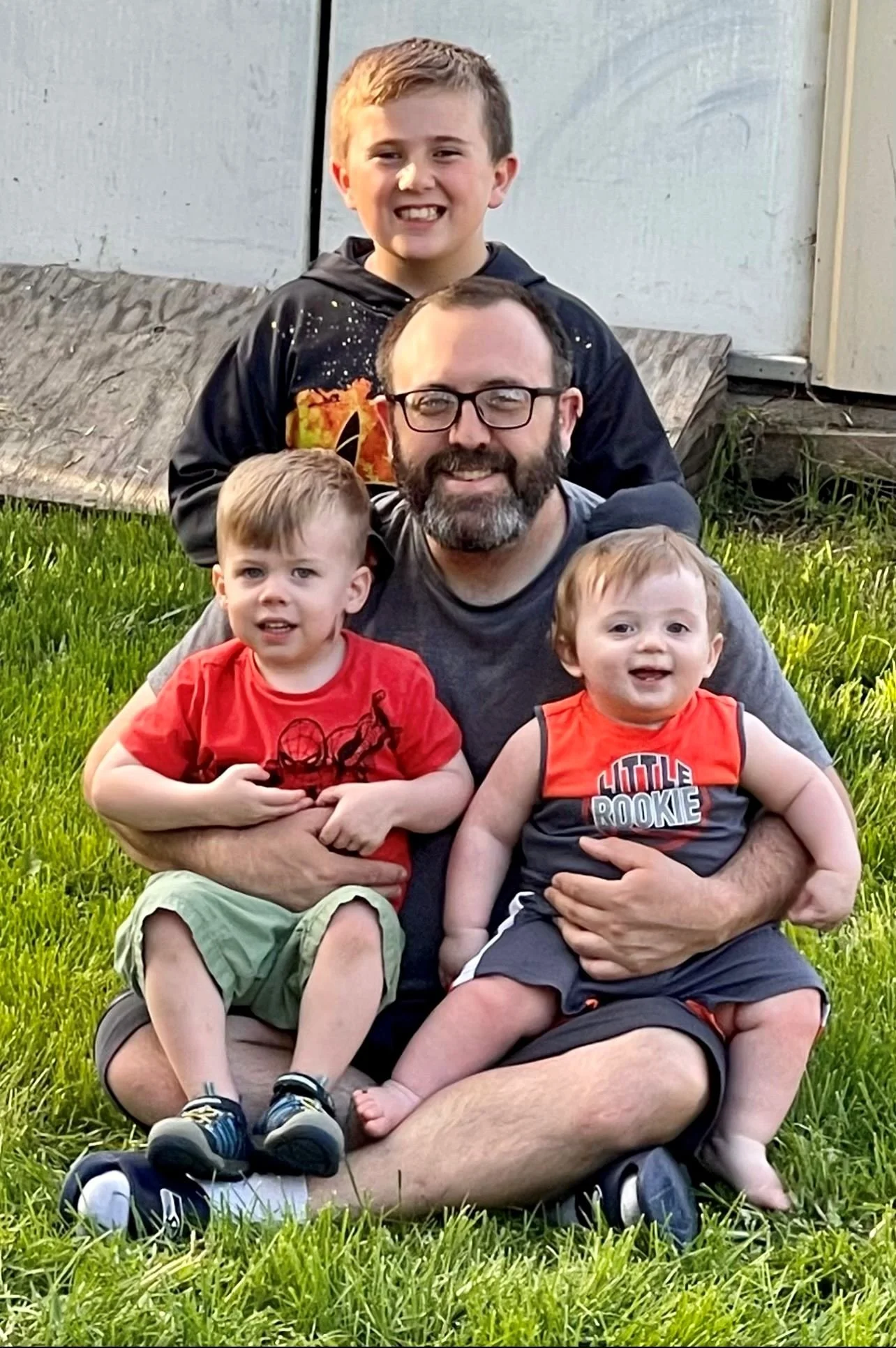When Kristi accepted her new job, she never thought she would be her own first client
From Washington Gorge Action Programs:
By Tamara Kaufman
Goldendale, WA (July 26, 2023) - Imagine your first month at a new job and finding out that you are unexpectedly pregnant and about to lose your home. Two years ago, this was Kristi Packer’s reality.
Packer is a housing coordinator for Washington Gorge Action Programs (WAGAP). When she accepted her new job, never in her wildest dreams did she think she would be her own first client.
“My Turning Point program specifically is helping homeless families with children find housing, which is crazy and ironic considering how everything has happened,” Packer said.
Her journey began as a child in Everett, Washington. But then she spent her formative years in Goldendale from ages 10-24 and met her future husband, Jeremy. This time together instilled a sense of community into the couple, which Packer says is extremely important to them.
As a new couple, they moved to Everett in search of opportunities, but after eight years of rising rents and a high cost of living, they had enough. They wanted to be surrounded again by family and friends in a place they could afford, so they decided to return to the Gorge with their first son in 2018.
During the move, they endured separation and extended periods of couch surfing. “My family is my whole world,” Packer said. “All those things were worth it, to return to our Goldendale community and be closer to our family.”
Fast forward to 2021. Packer started her new role as a housing coordinator with WAGAP. Shortly after starting, she received two bits of news that changed their lives. She was expecting a third child, and her family would have to vacate their rental home.
That is when the irony hit her. Now her growing family had to scramble to find a place to live. And it wasn’t easy.
She said she knows her situation was not as dire as the clients she serves, but the three months the family spent living with a friend and sharing a single bedroom for two adults, two children, and one more on the way gave her a new perspective. It made her appreciate how good they had it.
“Other people have it a hundred times worse than what we were going through,” Packer said. “We got lucky that a new duplex came up for rent, and our application was approved. But it isn’t always so straightforward for the homeless families I serve.” “Availability is the number one concern for low-income families,” Packer said. ”It is not fast or easy for people to find housing.” This experience gave her a better understanding that the problem her clients faced was bigger than she had realized.
Now she says she knows better. Her team works with landlords to find suitable places for clients to live. But Packer says eight families are the most she can house on her Turning Point program in a year. The rest must rely on other programs and remain on a waiting list.
“Landlords have to be willing to accept these clients,” Packer said, “and that can be difficult because clients don’t reach income thresholds and often don’t have credit histories. That’s just not the case for most of these people.”
So the housing office team does whatever it takes to support clients, working with other WAGAP programs and with agency partners. Packer says the priority is “making sure we are giving them some help and guiding them in the right direction.”
“We have a care closet that helps homeless clients have supplies they need to survive, like a tent, sleeping bag, mat, gloves, coats, and hygiene supplies,” Packer says. “But our goal is to get them into stable living conditions as soon as possible.
The Packer Family’s experience has given her a perspective that she uses to relate to her clients and have compassion for their situations. “Now I understand the stress better,” she said. “I feel like I can relate. I understand the fear and how scary it is.”
The main goal of all programs at WAGAP is to help people become self-sufficient and get back on their feet. She said it can take a long time to get housing lined up, but the team works hard to get people sheltered and into more permanent situations. They celebrate successes.
She shared the story of a family of five living in their car in the winter. With three school-aged children, they needed shelter and stability. Packer’s team temporarily set them up in a hotel and connected them to the Department of Social and Health Services for assistance. Next, Father’s House in Goldendale supplied clothing.
Packer helped them with the Turning Point Rapid Re-housing program application process. A search began for a house that would accommodate them, regardless of their challenging credit and lack of referrals.
The family remained in temporary accommodations through the winter but never gave up. The husband found employment, and the kids were enrolled in school.
Packer says the family checked in weekly and always stayed positive throughout all their hardships and stress. They were optimistic something would change, and it did. Now they have reliable housing big enough to fit all five of them. The parents are back to work and able to financially support themselves.
“I feel like we made a difference in their lives,” Packer said. “It’s nice when you can be there and see them all the way to the end,” Packer said. “It’s them being able to make it on their own, and that is what we are here for.”
Now Packer, Jeremy, and their three boys, Avery, Kaleb, and Skyler, have settled into a bigger house with a yard in Goldendale and appreciate the stability. She still considers herself a city girl at heart but says, “It was the best decision we ever made coming back. I feel safe and connected. Ultimately, I feel like this is where I’m meant to be. Being around family and friends and being able to help other people, it just feels so gratifying.”
# # #
Washington Gorge Action Programs (WAGAP) is a 501(c)(3) non-profit Community Action Agency that helps individuals, families, and communities. WAGAP addresses basic human needs, including food, shelter, energy assistance, and more, in Skamania and Klickitat Counties. For more than 50 years, WAGAP has helped people help themselves and reach self-sufficiency. Learn more at wagap.org, or contact WAGAP at (509) 493-2662 or info@wagap.org.




